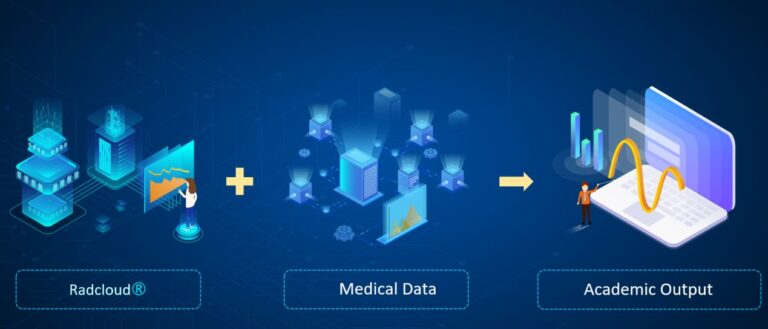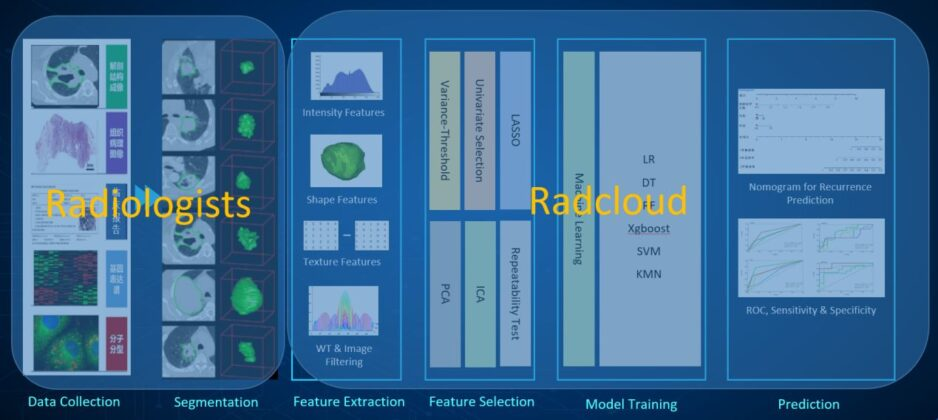The AutoML in Medical Imaging Field-the customized research tool for doctors
Quote from:ED Times
01/03
2022
There is no doubt that AI has shaped the way people communicate with the world, it has also triggered scientific discoveries and breakthroughs. One utmost concern regarding research is the burgeoning databases which seem overwhelming for scientists, especially when data acquisition and analysis play a significant role. Several AutoML tools have emerged for the facilitation of big data research without requiring scientists to have deep ML expertise, including AutoWEKA and Google AutoML.
As for the progress made in the medical field, life expectancy increased more than 20 years within the last century, benefiting from the rapid progress in medical science in the form of papers, publications, etc. Medical imaging, accounting for more than 80% of medical data, its embedded medical value is crucial for both clinical practice and scientific advancements. However, current AutoML tools face hurdles in front of medical field, their image segmentation functions fall short and results lacking model explicability.
Fortunately, we got help. An AI-assisted scientific research platform, Radcloud by HY Medical (China), provides an innovative one-stop analysis tool to realize radiomics research requiring zero programming from doctors. Integrated with 50+ cutting-edge machine-learning and radiomics algorithms, 1,000+ eigenvalue analysis tools, Radcloud tremendously extended the dimension of data analysis by extracting valuable information from the flood of data that daunts human insights. 
“The changes caused by the application of AI in the field of scientific research are even more surprising than in the clinical application stage.” said by keynote speaker Dr. Hirofumi Kuno (Director of the Radiology Department, National Cancer Center, Japan) during RSNA 2019, who presented two papers produced by the National Cancer Center of Japan using Radcloud. “Exploring Radiomic Machine-Learning Classifiers Extracted from Predicting the Risk of Post-Operative Recurrence in Patients with an Advanced Squamous Cell Carcinoma of the Tongue” and “CT-based Analysis Using Radiomics for Predicting Pathological Response after Preoperative Chemotherapy in Patients with Locally Advanced Esophageal Cancer”. Both presentations shared cutting-edge scientific research results to the world and were showcased at RSNA 2019.
As a notable user of Radcloud, Dr. Kuno is quite content with the convenience that it brought. “On the Radcloud Platform, our scientific research process is almost exactly the same as our daily reading diagnoses. The platform completes the synthesis of multi-dimensional data information, extracts features, and artificial intelligence modeling, which makes data value mining and clinical AI-assisted decision-making within easy reach.”

With DICOM images uploaded to the platform, Radcloud takes over the mundane process of data governance, and uses its state-of-art data analyzing tools to extract features and carry out modeling to spot correlation in data sets that are too substantial for human to cope with. In the end, the intelligent platform also exports a draft paper with generated graphs for use, which provides a great head start for the paper writing process. By alleviating the data process burden from radiologists, it contributes to more scientific output thus encouraging medical development. Besides, the precious time and effort that Radcloud spares can be dedicated to more patient care and life-saving processes.
Possessing both big medical data and demand for precise diagnosis, Radcloud has already been adopted by 20,000 doctors, covering 20+ diseases (cancer, glioma, stroke…), contributed to 80+ publications (SCI, RSNA, ISMRM…) and helped in applying millions of dollars of grants. It speeds up the output progress by 80%, with an average of 30d for data analysis and 60d for paper submission.
In the future, radiologists should not only know how to read medical images, but also how to explore the potential knowledge embedded in medical big data. Learning about the application of AI technology in medical field is a key factor of being a radiologist in the new era.

